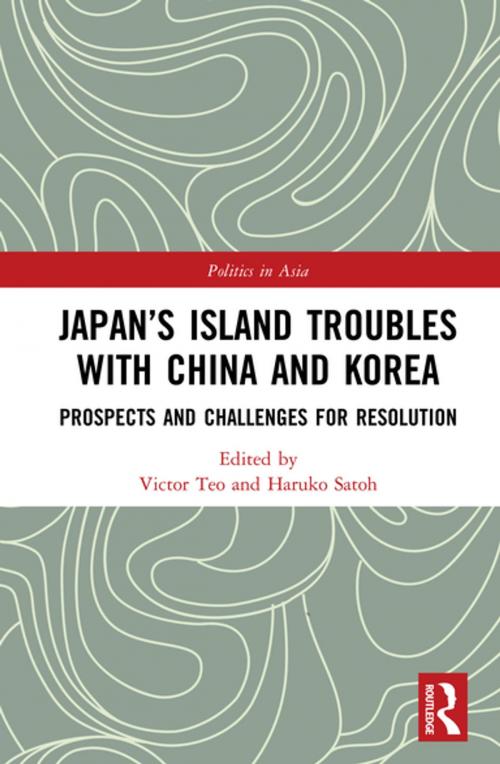Japan’s Island Troubles with China and Korea
Prospects and Challenges for Resolution
Nonfiction, Social & Cultural Studies, Political Science, International, International Security, International Relations| Author: | ISBN: | 9781351619035 | |
| Publisher: | Taylor and Francis | Publication: | November 1, 2018 |
| Imprint: | Routledge | Language: | English |
| Author: | |
| ISBN: | 9781351619035 |
| Publisher: | Taylor and Francis |
| Publication: | November 1, 2018 |
| Imprint: | Routledge |
| Language: | English |
This book examines the Senkaku/Diaoyu dispute between Japan and China and the Dokdo/Takeshima dispute between Japan and Korea, in order to offer new perspectives on the possible approaches towards amelioration and resolution of these conflicts.
Japan’s Island Troubles with China and Korea addresses the prospects of and challenges to achieving resolutions in the island disputes, rather than focusing solely on the origins and the political roles they play in the domestic politics of the three nations. Furthermore, in taking an interdisciplinary approach, this book transcends existing studies, which focus on the domestic contexts of the disputes, and therefore avoids the pitfalls of nationalistic narratives. Instead, this book fills a theoretical and methodological lacuna in the academic literature, exploring how the islands could become a point of co-operation, rather than contention.
Providing a fresh examination of Japan’s relations with its two closest neighbours, this book will be invaluable to students and scholars of Asian politics and international relations, security studies, and Asia-Pacific studies more generally.
This book examines the Senkaku/Diaoyu dispute between Japan and China and the Dokdo/Takeshima dispute between Japan and Korea, in order to offer new perspectives on the possible approaches towards amelioration and resolution of these conflicts.
Japan’s Island Troubles with China and Korea addresses the prospects of and challenges to achieving resolutions in the island disputes, rather than focusing solely on the origins and the political roles they play in the domestic politics of the three nations. Furthermore, in taking an interdisciplinary approach, this book transcends existing studies, which focus on the domestic contexts of the disputes, and therefore avoids the pitfalls of nationalistic narratives. Instead, this book fills a theoretical and methodological lacuna in the academic literature, exploring how the islands could become a point of co-operation, rather than contention.
Providing a fresh examination of Japan’s relations with its two closest neighbours, this book will be invaluable to students and scholars of Asian politics and international relations, security studies, and Asia-Pacific studies more generally.















